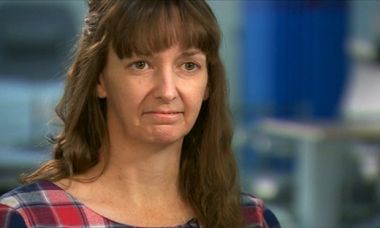'Totally unprecedented': British nurse suffers from Ebola relapse

A British nurse has been reported to be suffering from a life-threatening relapse after fully recovering from Ebola.
Nurse Pauline Cafferkey is currently under high level isolation at the London Royal Free Hospital where she is being "treated for Ebola." Her condition has reportedly been deteriorating.
Cafferkey, who was cleared of the Ebola virus after she had contracted the disease, was readmitted to the hospital last week due to what was initially thought as "an unusual late complication."
The Scottish nurse's case is baffling the medical community, being the first reported case of Ebola relapse.
"This is totally unprecedented. We've never seen this, and there's so much uncertainty," Jeremy Farrar, a specialist in infectious diseases and director of the Wellcome Trust, said, as quoted by Scientific American.
"Is this a one off? A very rare event? Or is this going to be quite common? The honest answer is we don't know," Farrar added.
Jonathan Ball, a professor of molecular virology at Britain's University of Nottingham, meanwhile described the reported Ebola relapse as "frankly staggering."
Derek Gatherer, a virus expert at Britain's Lancaster University, for his part, said research on the Ebola virus is even more critical now, given that there is no medical literature on such a relapse.
"The closer we look at the Ebola virus, the more complicated it becomes," Gatherer said.
Farrar agreed with Gatherer on the importance of further studies on the Ebola virus.
"The uncertainty is very difficult to communicate, but it absolutely underlines why research is so critical," he said.
Farrar also pointed out the implications of relapse on other Ebola survivors, especially in places in Africa where there used to be an outbreak.
"There are so many unanswered questions, all with really profound implications—for the epidemic, for the survivors and their families, and for the next inevitable outbreak of Ebola," he said.
The medical world should immediately act to solve the curious case of the Ebola relapse before another possible outbreak happens, according to Ilhem Messaoudi, a biomedical sciences expert at the University of California.
"Even if you don't have the virus in your bloodstream it can be hiding out. And we need to be aware of that because it's setting up the stage for potentially new outbreaks," Messaoudi said.











